Amish Voices Volume 2 – Book Winner & Unused Selections
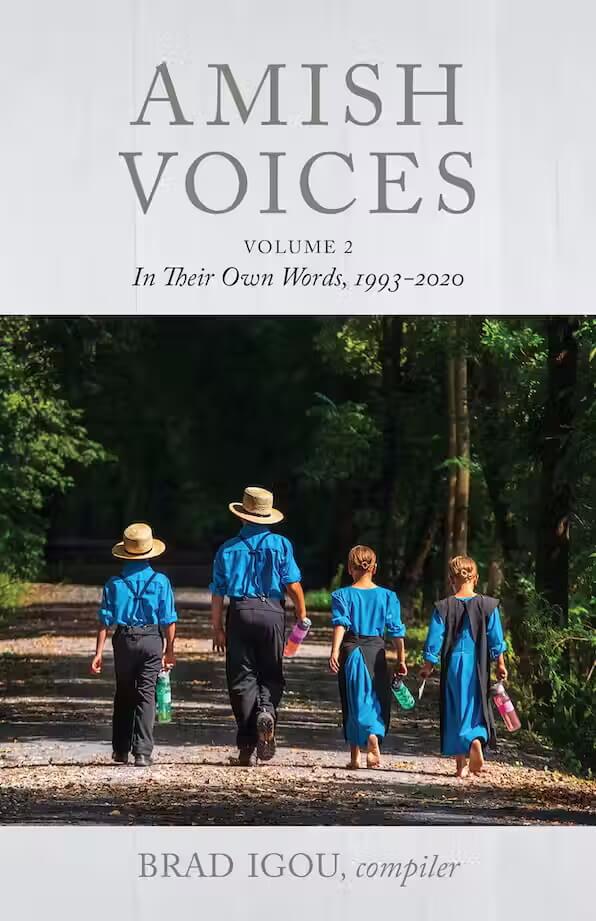
The new book Amish Voices Volume 2: In Their Own Words, 1993-2020 is the sequel to Amish Voices. These two books are comprised of selections from the Amish monthly publication Family Life. If you missed the interview we published last week with compiler Brad Igou, you can check that out and get up to speed here.
In that discussion, Brad shared his monumental task of whittling the book from a starting point of 475,000 words down to 65,000 for publication. That meant a lot of worthy selections had to be left out. So this week – along with announcing the book winner – we wanted to share some of those pieces from Family Life which did not make the final cut – but very well could have.
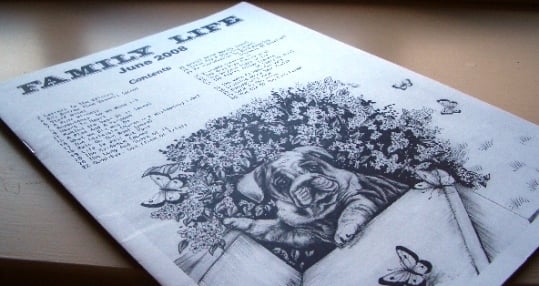
So in no particular order, here are some unused selections from Family Life. These should give you a feel for the type of writing and topics covered both in the Amish publication and in the Amish Voices books.
Unused Selections from Amish Voices Volume 2: In Their Own Words, 1993-2020
Known By Our Song
Have we ever taken time to marvel at the miracle of birdsong? The amazing part is that each species has its own peculiar song, and by that song we can recognize what kind of bird is singing, even if we cannot see it. Some bird songs are very musical, a delight to hear. Of course, not all the utterances of birds are pleasant to human ears.
How does each species preserve its distinct song from one generation to the next? Are little birds hatched with an inborn instinct? Or is there also a learning process in which young birds practice the songs of their parents?

If a bird can be known by its song, how does this apply to us as humans? What “song” am I presenting to the world that surrounds me? What do my friends “hear” as they associate with me from day to day? Is my life a pleasant melody, a testimony of praise to my Lord that spreads in widening ripples to others? Indeed, if I am known by my “song,” as birds are recognized by theirs, what does that song say about me? (“Honey From The Hive,” 12-2016)
“The Bad Habit Tree”
When we lived in Pennsylvania and our boys were yet small, I decided to give them an object lesson as to what bad habits can do. One day while working near the woods, I crawled up a young ash tree and bent it over, and tied it down with a piece of barbed wire. I pointed out to the boys that if the tree were released, it would straighten up. The wire was like a bad habit holding the tree down.
We left the tree in that position for about a year. One day we went and cut the wire. The bad habit had done its work. The tree did not spring back. It stayed in the same position in which the bad habit had held it.
To us a bad habit can be lying, stealing, pride, bad language, or any number of other things. Any one of these things is strong enough to hold us down so we cannot grow straight in character.
When we moved to Canada, the tree was still in its bent position. Several years later when we were back on a visit, we walked into the woods to see the tree. What a pleasant surprise! It was still bent, but a new shoot had grown out and was reaching straight up for ten feet or more. In time the new growth will most likely form the main trunk and the tree will keep growing upwards.
That tree taught me two lessons. It showed what a bad habit can do. But it also proved that in spite of a bad habit, there is still a chance of going straight. Wrongs that have been done cannot be undone. But it is still possible to go straight even if damage has been done. (Samuel Hertzler, Lakeside, Ontario, 4-68, reprinted in 5-93)
Recipe for a Happy Home
4 cups of love 5 spoons of hope
2 cups of loyalty 2 spoons of tenderness
3 cups of forgiveness 4 quarts of faith
1 cup of friendship 1 barrel of laughter
Take love and loyalty; mix it thoroughly with faith. Blend it with tenderness, kindness, and understanding. Add friendship and hope; sprinkle abundantly with laughter. Serve daily with generous helpings. (“Homemakers Page,” 3-97)

The Horse’s Plea to His Master
To thee, my master, I offer my petition — feed me, water, and care for me, and when the day’s work is done, provide me with shelter, a dry bed, a stall wide enough for me to lie down in comfort.
Always be kind to me. Talk to me. Your voice often means as much to me as the reins. Pet me sometimes, that I may serve you the more gladly and learn to love you. Do not jerk the reins, and do not whip me when I am going uphill. Never strike, beat, or kick me when I do not understand what you want, but give me a chance to understand you.
Watch me and if I fail to do your bidding, see if something is wrong with my harness or feet.
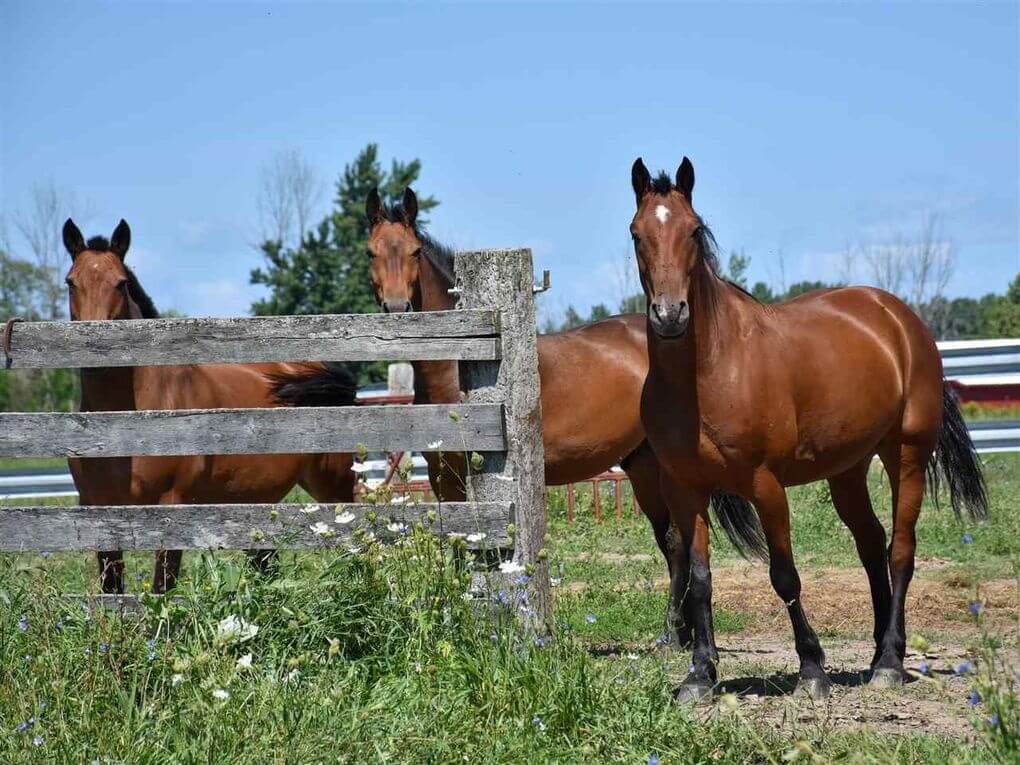
Do not overload me, or hitch me where water will drip on me. Keep me well shod. Examine my teeth when I do not eat. I may have an ulcerated tooth and that, you know, is very painful. Do not take away my best defense against flies and mosquitoes by cutting off my tail.
I cannot tell you when I am thirsty, so give me clean, cool water often. I cannot tell you in words when I am sick, so watch me and by signs you may know my condition. Give me all possible shelter from the hot sun and put a blanket on me, not when I am working, but when I am standing in the cold. Never put a frosty bit in my mouth. First warm it by holding it in your hands. (6-98)
Stranger in the House
As children grow up, they are readily influenced by their companions. And there are good influences and there are evil ones. The following account tells of the influence a certain stranger had on the home of the author, whose identity is not known to me…
A few years after I was born, my father met a stranger who was new to our small town. Dad was fascinated by this newcomer and soon invited him into our home. The stranger was quickly accepted, and we grew up having him in our presence.
As a child, I never questioned his place in the family. He was our storyteller. He would keep us spellbound for hours on end with adventures, mysteries, and humor.
If we wanted to know anything about politics, history, or science, he always knew the answers. He was informed about the past, understood the present, and even seemed able to predict the future. He took our family to the first major league ball game. He made me laugh and he made me cry.
My dad did not permit the use of alcohol, but the stranger encouraged us to try it. He talked freely about intimate subjects that only concern husbands and wives.
I now know that my early concepts on such subjects were influenced strongly by the stranger. Time after time, he opposed the values my parents held, yet he was seldom rebuked. And he was NEVER asked to leave.
Many years have passed since the stranger moved in with our family. He has blended in and is not nearly as fascinating today as he was at first. Still, if you walk into my parents’ living room, you will find him sitting over in his corner, waiting for someone to listen to him and watch him show his pictures.
His name? We just call him T.V. for short. Now he has a younger brother. His name is Internet.
Let us beware of the strangers that we allow into our homes! (“Honey From The Hive,” 4-2013)
“Mom’s Pocket”
Much is said about the pockets
Of ambitious little boys,
How they fill them with anything
From wiggling worms to toys.
Well, I am just a mother,
But I like my pocket, too.
It comes in very handy
When there’s lots of work to do.
And when I rest at evening,
My children like to say,
“Mom, what is in your pocket?
What did you find today?”

Well, here’s some chalk, a crayon,
A safety pin, a snap,
A satin ribbon that belongs
On smallest dolly’s cap.
Two buttons and a marble,
A penny and a dime,
Two stubby little pencils —
I find them all the time.
But there’s a rule to follow
Before to bed you scamper —
Your pocket must be empty
When you put it in the hamper! (Suzy Miller, 7-97)
~~~
I discovered just recently that the Amish have something in common with the Japanese— not in eating habits or in our way of dressing, but in caring for aging parents in our homes. The article I read stated that in Japan 66% of the older people live with one of their children, whereas in the United States only 12% do. The Bible teaches us to not only care for our parents, but also for our relatives and members of our faith.
The practice of close relatives caring for the elderly is so uncommon in our country that tourists visiting Amish communities marvel when they see several generations living together on one homestead.
Looking after the needs of our parents is actually an exchange of services — the parents care for their children when they are small, provide them with food and clothing and training until they are old enough to take these responsibilities upon themselves. Why shouldn’t they then help their parents when they are no longer able to fare for themselves?

But often there are obstacles to overcome before the two generations can live together in peace and harmony. Some people find it hard to hand the reins of management over to the younger generation. Some people are still able to work hard physically but do not realize they are no longer functioning mentally like they were when they were younger. This can cause misunderstanding, frustration, and friction.
However, this is looking only on one side of the coin. We also see older people living happily and contentedly with one of their married children, helping with such jobs as peeling peaches, shelling peas, and running errands to the repair shop. In such instances, the older people are greatly appreciated for their usefulness, cared for when they are ill or senile, and grieved for after they are gone. Sometimes the period during which a person needs constant help extends into years; life for those who take care of the elderly is not easy. Often we can learn from others and receive help in overcoming some of the burdens of caring for the sick and elderly. (“Staff Notes,” E.W., 12-94)
“A Little Parable”
Reading your articles on mental health makes me think of people who feel anyone with mental problems should just forget their senseless concerns and “Snap out of it!” So I have written a little parable:
If you have a field of hay out and ready to put away tomorrow, and you see dark clouds coming in the evening, do you tell yourself, “Forget about it” and go to sleep? It keeps raining for a week or two; do you lock the hay out of your mind? Forget about it! Try harder!
The weather is getting colder. The garden has some things in it which must not freeze. The children need winter clothing. You hardly know which project to do first. Forget about the garden. Forget about the winter clothing. Lock them out of your mind. Go bake a cake and relax. Forget your problems. Try harder!

You haven’t heard from your wayward son in years. Maybe he isn’t even alive anymore. Forget him. Put him out of your mind. Try harder!
Whether our concerns and anxieties are realistic or unrealistic, all minds work the same. We cannot simply tell ourselves to “Forget it.” We all need an understanding friend in whom to confide our burdens.
A broken bone, a deep cut, or a bad bruise takes much longer to heal than it did to injure. Our minds are part of our body. They can be injured in various ways, including verbal abuse. The mind also needs a lot of time to heal. Time, sincere sympathy, understanding, and encouraging words go a long way in healing troubled minds. (“Letters to the Editor,” An Ontario Sympathizer, 10-93)
“An Ode to Hardships”
An oyster must be injured
Before a pearl appears;
Our hearts cannot grow tender
Until they’re washed by tears.
Pure gold is always melted
By a terrific heat;
Good character is strengthened
By the storm winds of defeat.
The lonesome pine that’s twisted
Holds a challenge in its form,
Each limb a written record
Of the beating of the storm.
A smooth road cannot take us
To the mountain’s highest peak;
An easy life won’t bring us
The treasures that we seek. (Indiana, 1-98)

Amish Voices 2 Book Winner
First of all, thank you for all your comments last week and your kind words about this site, the interview with Brad, and the first volume of Amish Voices. It seems a good number of you are familiar both with that book and Family Life as well.
So on to the drawing. I used random.org to select a book winner from your entries. And the winner is:
Comment #56, Denise (note: two different Denises entered the giveaway, the winning comment is this Denise)
Congratulations Denise, please send me an address so you can get your book (ewesner[at]gmail[dot]com).
Where to get Amish Voices 2
Well, so with only one copy to giveaway, I guess it’s not a surprise that most of you who entered didn’t win 🙂 But, great news, you can still get a copy of the book (or books if you haven’t read the original Amish Voices yet). They are available from the publisher MennoMedia, at Amazon.com (of course), and other online and bricks-and-mortar retailers. And thank you to Brad Igou and to MennoMedia for the posts and giveaway.






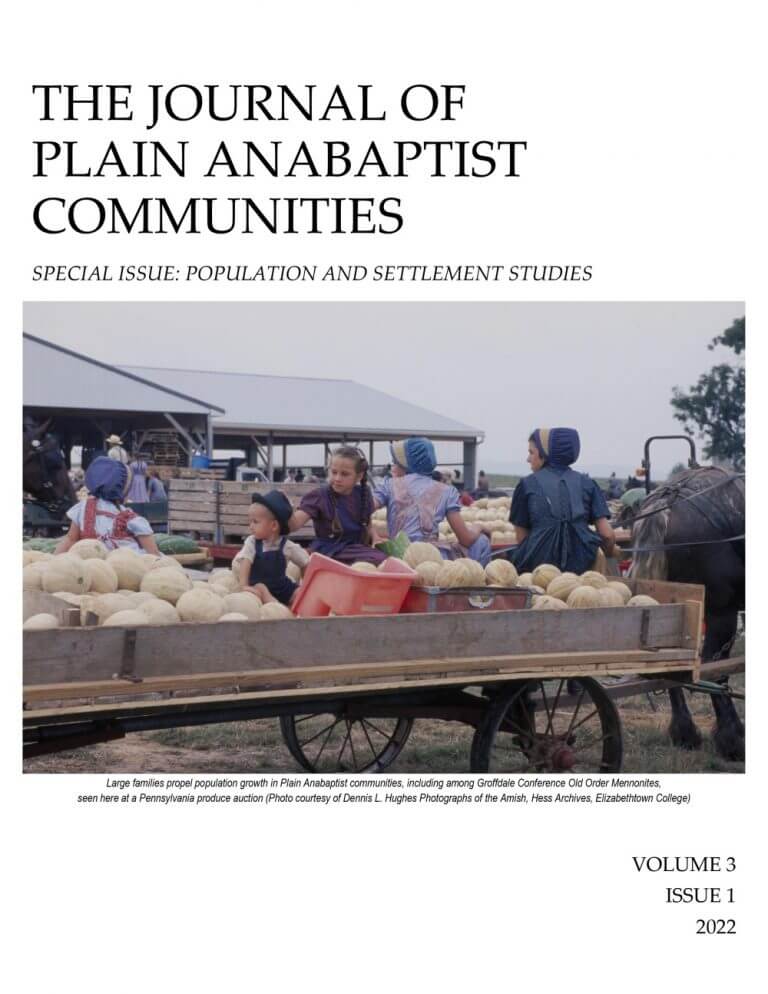
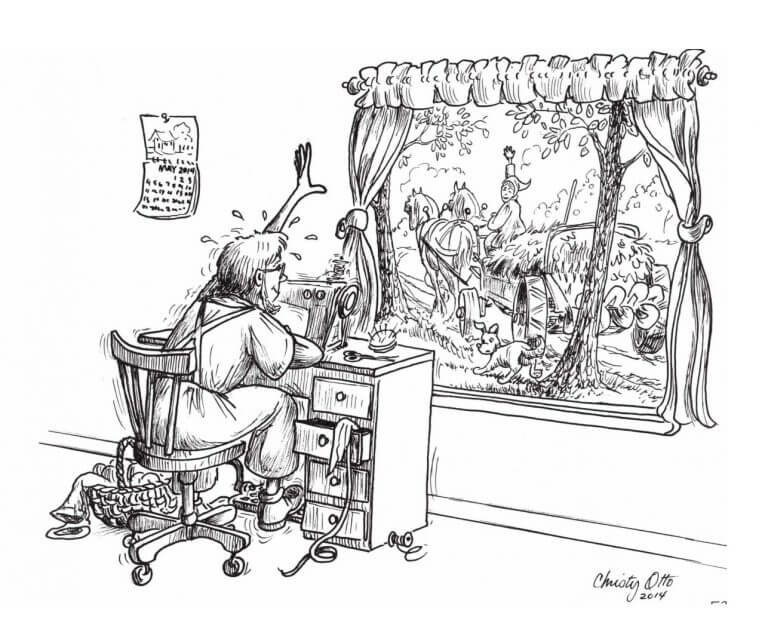
Unused stories
I really enjoyed these selections! I can’t imagine how much I will love the book when I get it.
From the Denise that didn’t win ; )
Treasure
What a treasure each of the unused passages is. Hope they can get published sometime in the future. Can’t wait to read the passages that made the cut into the book.